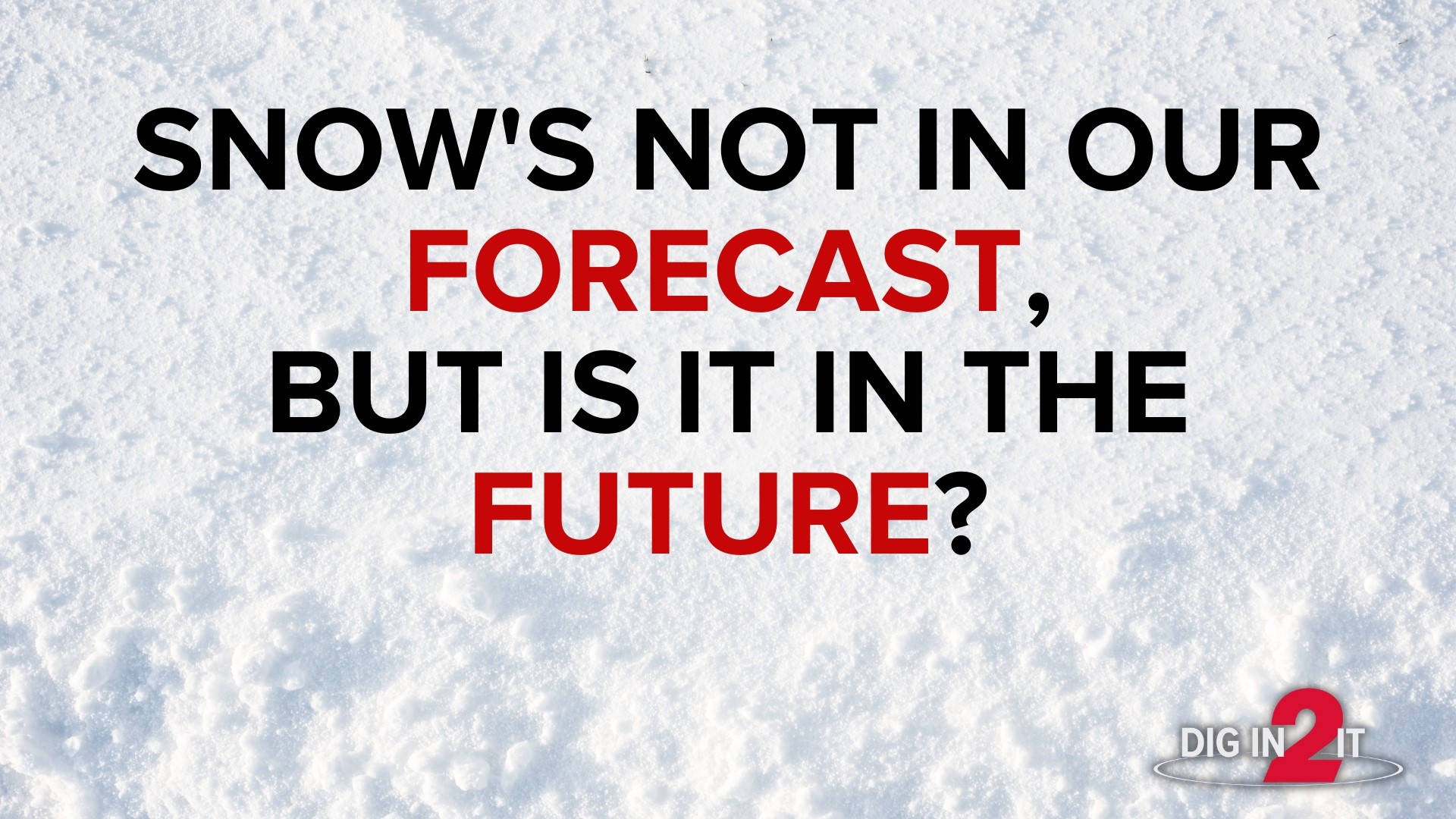GREENSBORO, N.C. — The Triad saw a mid-March cold snap, with overnight lows below freezing. People even woke up to a dusting of snow on March 12, but it wasn't really enough to make the snow lovers happy.
To be clear, as of March 15, 2023, there is NO snow in our forecast. To answer the question: "Can it still snow this time of year?" WFMY News 2 Chief Meteorologist Tim Buckley took a look at the numbers.
Buckley says about 20% of the Triad's snow comes in the month of March, historically. Of that 20%, the majority happens in the first half of the month.
Once the Triad gets to March 20, it's a lot harder to see snow. This is what Buckley found out about past spring snows:
The big message here is don't get your hopes up.
Protecting your plants
With the Triad's sub-freezing nighttime lows this week, farmers who are seeing their crops about two weeks ahead of schedule scrambled to protect them from the freeze.
"March has kind of come in here and has brought us February weather and so what it's done is slow the berries back down," said Matt Rudd with Rudd Farms.
Rudd said their plants are about two weeks ahead of schedule now, but with the cold weather, the plants take a pause.
"If we can stay in the mid-20s, upper 20s and we don't get much colder than that, the stuff we have in place, we can manage it pretty well," said Rudd. "You start talking about low 20s and teens, as long as the crops advance, that could cause some huge problems for us."
Over at Whitaker Farm, they're covering all of their outdoor crops with a heavier cloth than normal, and they're moving some plants into the greenhouse that normally stay outside.
"We have all of our veggies that we are growing, besides the cold crops, inside now," said Faylene Whitaker, co-owner of Whitaker Farm. "All the flowers are inside, our perennials are all inside, and then we have covered all of our shrubs that are blooming. Our trees that are blooming we've moved inside which we never do, but the blooms are just too pretty to lose it."
For your own veggies at home, Whitaker Farms recommends using a cloth to cover the plants. If you do use plastic, make sure to get it up in the morning before the sun rises.. to avoid it melting onto your plants.
Staying safe while staying warm
If you use a space heater to keep warm during the freezing nights, remember to practice good safety.
On March 10, Mebane Fire Officials said a space heater left unattended caused a fire that heavily damaged a home, leaving four people displaced. Two dogs were killed in that fire.
And in February, a video from a Winston-Salem firefighter's helmet showed leaping flames caused by a space heater placed too close to gasoline. Three people were displaced by that fire, but thankfully none of them were injured.
This is the National Fire Protection Association's space heater checklist:
- Purchase a heater with the seal of a qualified testing laboratory.
- Keep the heater at least 3 feet away from anything that can burn, including people.
- Choose a heater with a thermostat and overheat protection.
- Place the heater on a solid, flat surface.
- Make sure your heater has an auto shut-off to turn the heater off if it tips over.
- Keep space heaters out of the way of foot traffic and never block an exit.
- Keep children away from the space heater.
- Plug the heater directly into the wall outlet, never use an extension cord.
- Space heaters should be turned off and unplugged when you leave the room or go to bed.
You also want to make sure you have working smoke detectors in your home, and the U.S. Consumer Product Safety Commission (CSPC) says now is a good time to do it along with the clock change.
The CSPC recommends replacing your smoke alarm batteries at least once a year, some fire departments recommend every six months. Also, remember that smoke alarms have a 10-year lifespan. Check the back of the smoke alarm for the manufacturing date, and if it was more than 10 years ago it's time to get a new smoke alarm.

